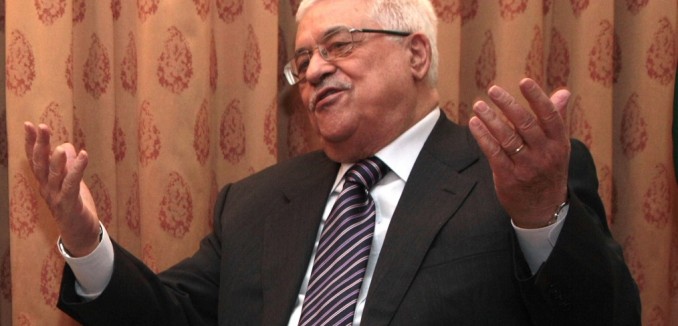In a move certain to deepen concerns about the Palestinian leadership’s commitment to reaching a peace agreement with Israel, Palestinian Authority President Mahmoud Abbas reportedly told American negotiators during his visit to Washington last week that he would not accept an “end of conflict” clause in any deal.
The report, which first appeared on Israel Channel 2 News based on American and Israeli sources and was reported by The Times of Israel, stated that Abbas had given three unequivocal rejections to the U.S. president:
Specifically, the report said, Abbas rejected Prime Minister Benjamin Netanyahu’s demand that he recognize Israel as a Jewish state. He also refused to abandon the Palestinian demand for a “right of return” for millions of Palestinians and their descendants — a demand that, if implemented, would drastically alter Israel’s demographic balance and which no conceivable Israeli government would accept. And finally, he refused to commit to an “end of conflict,” under which a peace deal would represent the termination of any further Palestinian demands of Israel.
Instead, Abbas stated that his goals in the negotiations were limited to “working for a solution that is based on international legitimacy and also the borders — the 1967 borders — so that the Palestinians can have their own independent state with East Jerusalem as its capital and so that we can find a fair and lasting solution to the refugee problem.”
Regarding the Jewish State recognition, commentators have noted that the Israeli position is both significantly in line with the original UN resolution 181 that established Israel as a Jewish state in 1947, and also reciprocal to recognition of the Palestinian right to self-determination that has long been accepted as the basis for rejecting a “Jordanian option” to end the Palestinian crisis. Similarly, with regard to the relocation of descendants of Palestinian refugees, the “right of return” is widely understood as the right to overrun the Jewish state with millions of immigrants, effectively eliminating it as such. As the New York Times columnist Roger Cohen put it, granting the right of return “equals the end of Israel as a Jewish state.”
Skeptics of Palestinian intentions have long turned to the first two rejections — made consistently by Palestinian leaders over the years — as proof that PA leaders had never negotiated in good faith, using the talks as a ploy to legitimize later violence and bolstering the international movement to delegitimize Israel. Yet with the third rejection — No to an “end of conflict” clause — it becomes difficult to understand what the point of talks was in the first place. By stating from the outset that negotiations will not bring a termination of the conflict, Palestinian leaders remove nearly all the incentive for Israeli compromise. Indeed, the absence of an end-of-conflict clause is widely seen as one of the main failings of the catastrophic 1993 Oslo Accords.
[Photo: francediplomatie / flickr]




